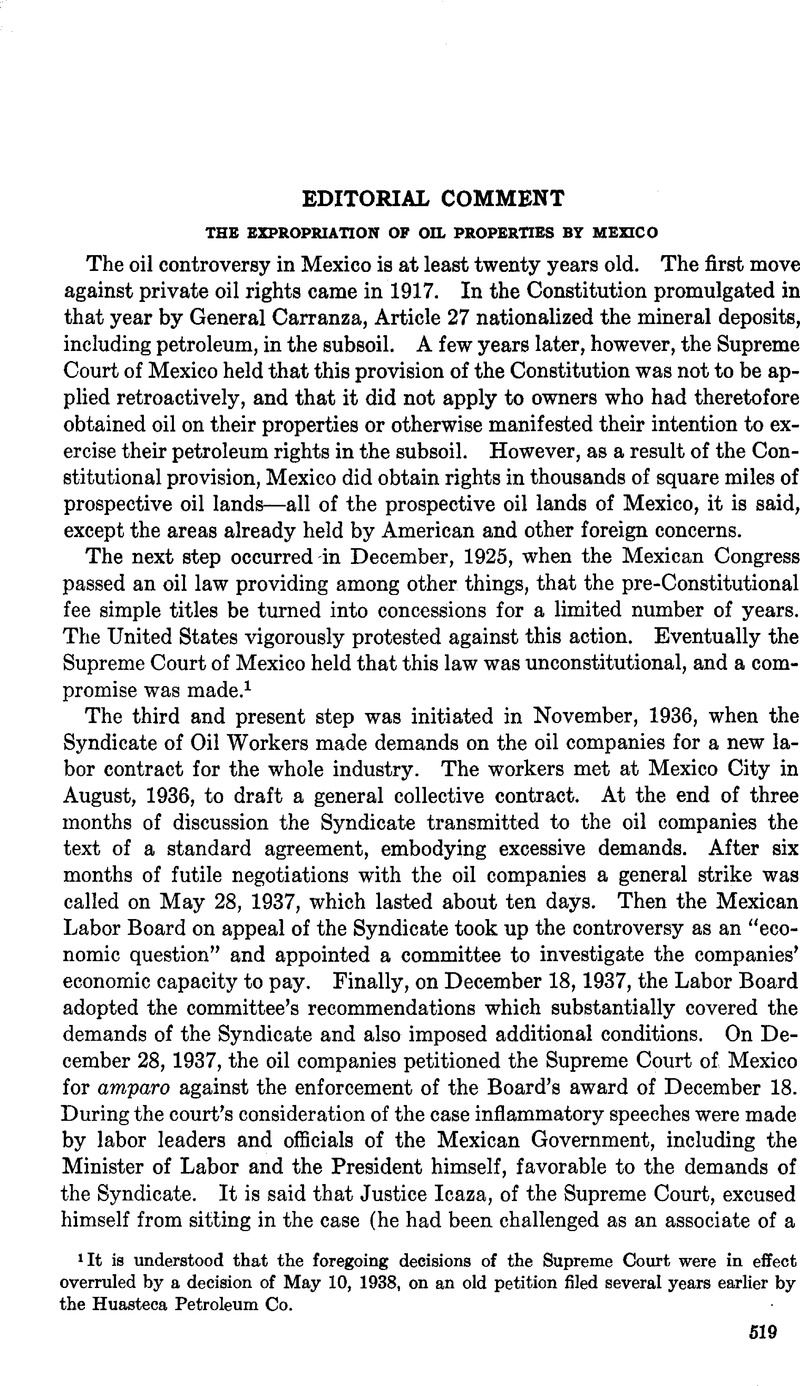Article contents
The Expropriation of Oil Properties by Mexico
Published online by Cambridge University Press: 12 April 2017
Abstract

- Type
- Editorial Comment
- Information
- Copyright
- Copyright © by the American Society of International Law 1938
References
1 It is understood that the foregoing decisions of the Supreme Court were in effect overruled by a decision of May 10, 1938, on an old petition filed several years earlier by the Huasteca Petroleum Co.
2 The preamble of the decree refers to the following provisions of the Expropriation Law of Nov. 23, 1936, and also to Art. 27 of the Constitution:
3 On April 4 last, suit for amparo against this decree and the acts thereunder was filed but apparently has not yet been decided by the court of last resort.
4 Compare with Art. 20 of the Expropriation Law, which appears to contemplate instalment payments, as does Art. 3 of the Cardenas decree. Moreover, to provide for paying the indemnity from profits of operation involves speculative conditions which may never be realized. Nearly all of the Constitutions of the Latin American States provide for prior indemnification.
5 This procedure is but partly judicial and clearly does not take into account all elements of adequate compensation under international law.
6 El Triunfo Company v. San Salvador, U. S. For. Rel. 1902, p. 859.
7 U. S. Arbitration Series No. 3, Washington, 1932.
8 Various terms are used to denote this concept, such as public utility, public interest, public welfare, public use, and the like. A general impersonal law banning a certain activity in the exercise of the police power in the interest of the public welfare and rendering property useless and worthless, may not be expropriatory or confiscatory. This JOUBNAL, Vol. 21 (1927), p. 692, and Proceedings of Am. Soc. Int. Law (1927), p. 38.
9 This Journal, Vol. 24 (1930), p. 384.
10 Hunt’s Report, p. 447; this Journal, Vol. 28 (1934), p. 611.
11 Whiteman, , Damages in International Law, pp. 1533–1534.Google Scholar
12 This Journal, Vol. 17 (1923), p. 394.
13 Administrative Decision No. III, Decisions and Opinions, p. 63; this Journal, Vol. 18 (1924), p. 605.
14 Administrative Decision No. VII, Decisions and Opinions, p. 331; this Journal, Vol. 20 (1926), p. 190.
15 1 Hudson, World Court Reports, p. 677.
16 The Cardenas decree also seems contrary to the principle of the decision of the Mexican Supreme Court of Nov. 17, 1927. This Journal, Vol. 22 (1928), p. 421.
- 2
- Cited by


